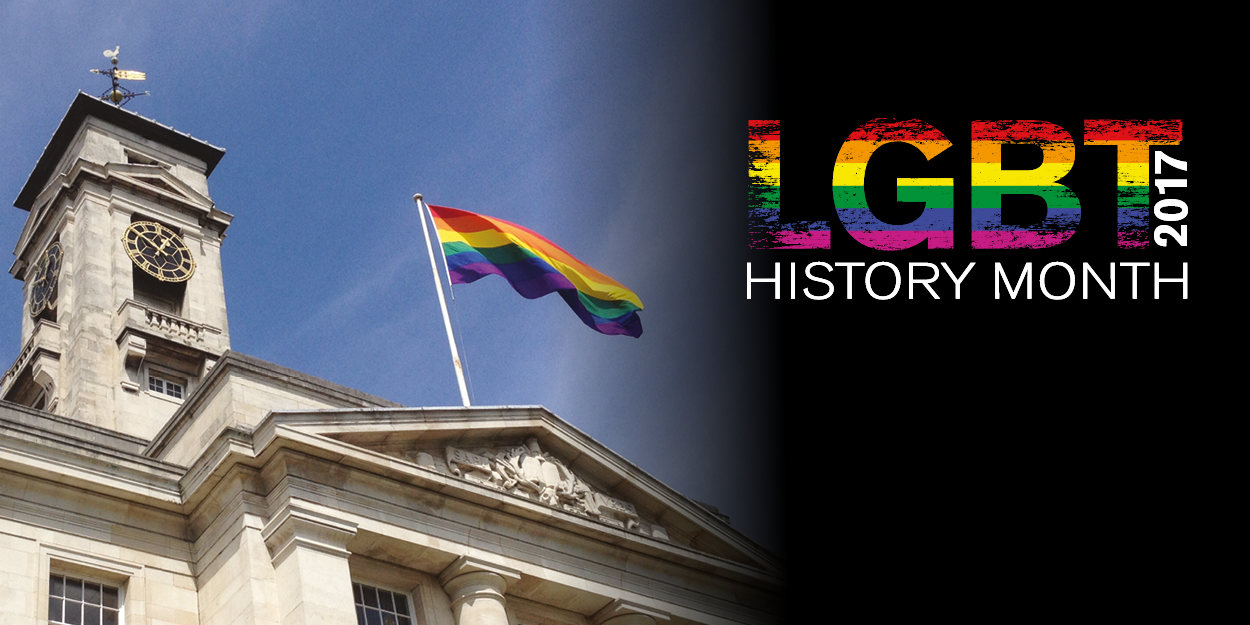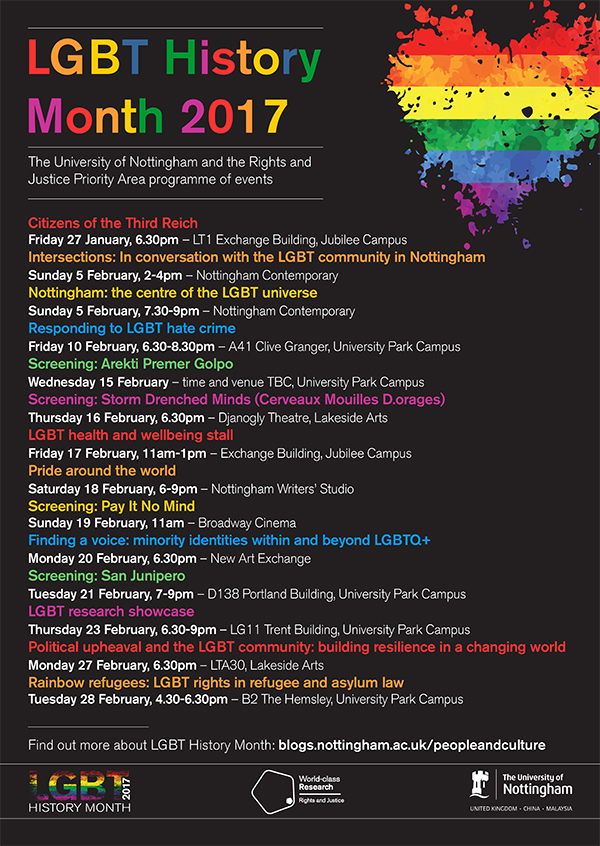
January 25, 2017, by Michael Jennings
Welcome to LGBT History Month 2017
Dr Max Biddulph, Associate Professor in Education and Counselling and Chair of the University’s LGBT Staff Network, introduces LGBT History Month 2017.
Welcome to LGBT History Month at The University of Nottingham, which we will be marking this year with a full programme of events, lectures, film screenings, panel discussions and more. The theme of this year’s history month is ‘Personal, Social, Health Education (PSHE), Citizenship and the Law’ which provides a rich agenda for discussion in educational contexts. Given the turbulent movements in global politics during the past year, this theme provides a thought-provoking platform from which to consider perspectives on ‘the new world order’ and the ways in which they intersect with LGBT issues.
At the launch event on Friday 27 January, Professor Marion Walker, Pro-Vice-Chancellor for Equality, Diversity and Inclusion at The University of Nottingham will introduce my lecture: ‘Citizens of the Third Reich: everyday betrayals and the pink triangle prisoners of Sachsenhausen’. This is a difficult story to narrate and one that goes to the heart of the debate as to whether a ‘history month’ should be up-beat and celebratory or also address some of the darker chapters in our history. The eminent historian Hugh Trevor-Roper writing at the end of the twentieth century argued strongly that we should not avoid the darker chapters, especially when they relate to genocide:
[so that]We do not forget the most sombre lesson of the second world war: the fragility of civilisation and the ease and speed which, in certain circumstances, barbarism can break through the thin crust and even , if backed by power and sanctified by doctrine, be accepted as the norm. Trevor-Roper, H. (1988:x) 1
These observations raise some fundamental questions about the current era, especially in terms of citizenship, community and voice, and the way in which a society conducts itself – our programme for 2017 has strong elements of all three of these components. In inviting suggestions for the programme we have been keen to listen to our LGBT communities with the aim of reflecting as strongly as possible some of the current thinking and concerns as well as working with our partners across the city. The result is rich spectrum of events that address both the process of articulating voice via activism, responding to current challenges such as hate crime, to looking inwardly at the composition of our communities and examining the intersections with other dimensions of identity, such as disability and race, that make up contemporary global LGBT experiences.
A pleasing thing is that in addition to staging events on our university campuses we will be taking other events out into the community to be staged at venues such as The Broadway Cinema and Nottingham Contemporary. I am looking forward to the next few months enormously and I hope that you will capture some of the energy and momentum too. Our programme is for absolutely everyone and we look forward to welcoming you there.
1. Trevor-Roper, H. (1988:x) in Klee, E., Dressen, W. and Riess, V. 1988. eds. ‘The Good Old Days’. The Holocaust as seen by its perpetrators and bystanders. Old Saybrook CT: Konecky and Konecky
No comments yet, fill out a comment to be the first


Leave a Reply